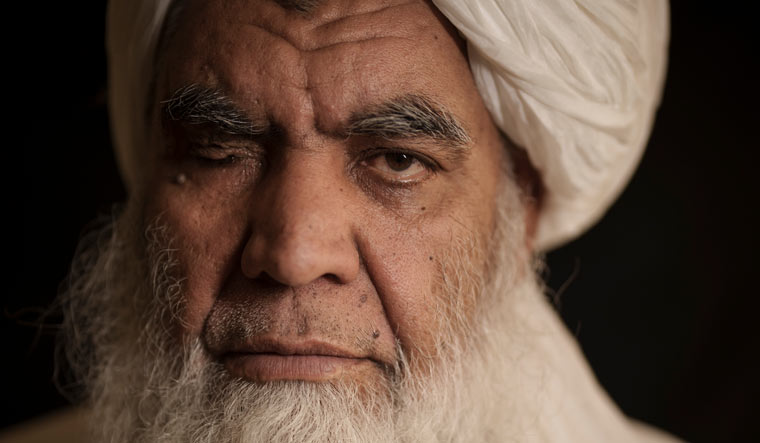Among the most chilling images of the first bout of Taliban rule in Afghanistan in the mid-1990s was the group's use of brutal punishments, often in stadiums and mosque premises.
While countries with ties to the Taliban such as Qatar and Pakistan have said the group has changed now, one of its most notorious leaders has said harsh punishments will return.
Mullah Nooruddin Turabi, regarded as one of the original founders of the Taliban, was justice minister and headed the country's ministry of propagation of virtue and prevention of vice in the first Taliban regime.
Turabi is currently in charge of prisons. A veteran of the resistance against the Soviet Union, Turabi had lost an eye and a leg in the conflict in the 1980s.
In an interview to Associated Press published on Thursday, Turabi said, "Everyone criticized us for the punishments in the stadium, but we have never said anything about their laws and their punishments... No one will tell us what our laws should be. We will follow Islam and we will make our laws on the Quran."
Turabi told Associated Press that this time judges, "including women", would adjudicate cases, but the "foundation of Afghanistan’s laws will be the Quran".
Turabi declared, "Cutting off of hands is very necessary for security." However, he was non-committal on whether the punishments would be carried out in public, saying the cabinet was studying the issue and would "develop a policy".
Chronicling Turabi's notoriety in the past, Associated Press reported, "When the Taliban took power in 1996, one of his first acts was to scream at a woman journalist, demanding she leave a room of men, and to then deal a powerful slap in the face of a man who objected. Turabi was notorious for ripping music tapes from cars, stringing up hundreds of meters of destroyed cassettes in trees and signposts. He demanded men wear turbans in all government offices and his minions routinely beat men whose beards had been trimmed. Sports were banned, and Turabi’s legion of enforcers forced men to the mosque for prayers five times daily."
also read
- 'Will retaliate': Taliban warns Pakistan after airstrikes target hideouts in Afghanistan
- In a first, India holds talks with Taliban government in Afghanistan
- Afghanistan: Taliban executes two murder convicts publicly in stadium
- 'Pakistan witnessed 500% rise in suicide bombings after Taliban takeover in Afghanistan'
Turabi is also among the Taliban officials on the UN's sanctions list.
However, this time, he was interviewed by a woman, Kathy Gannon. He told her "We are changed from the past."
Turabi said the Taliban would allow TV, mobile phones, videos and photos, saying they were a "necessity". However, he noted the group's goal in allowing such media was to "reach millions" using them. "He added that if punishments are made public, then people may be allowed to video or take photos to spread the deterrent effect," Associated Press reported.












